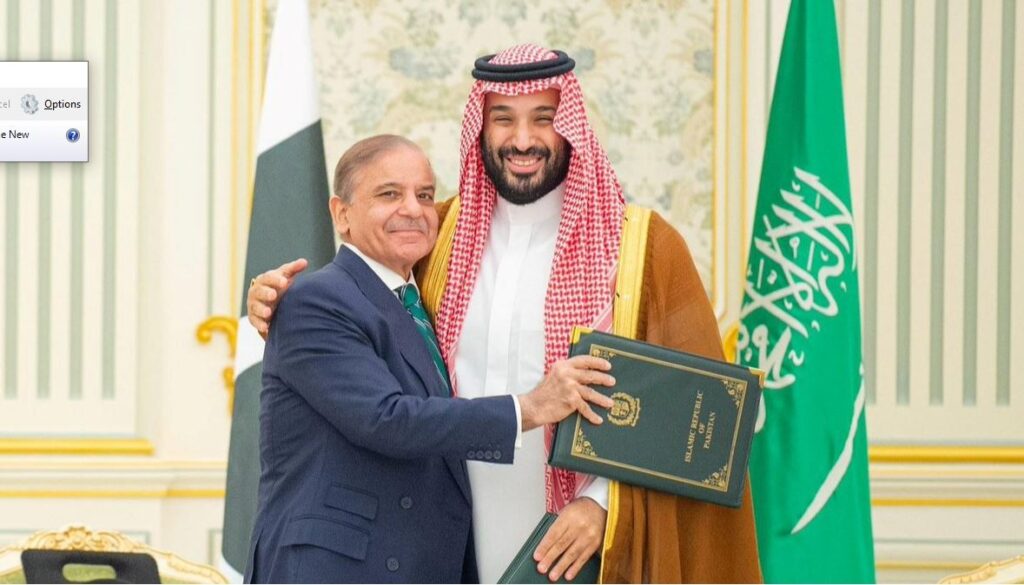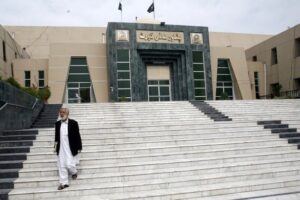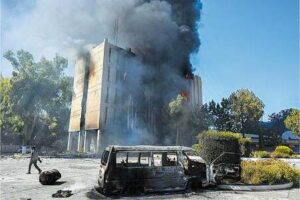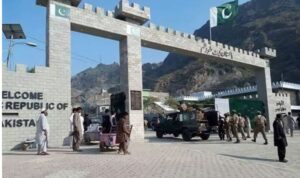PESHAWAR – The announcement of the Pakistan and Saudi Arabia Defence Agreement has stirred debate across South Asia and the Middle East. In a world where shifting alliances and sudden conflicts shape daily headlines, the pact stands out as more than a conventional treaty: it is a declaration of intent, carrying military, political, religious and economic weight.
The timing is crucial. Pakistan has already faced limited clashes with India, while Saudi Arabia has watched its neighbourhood burn — Israel’s bombardment of Gaza, conflicts in Yemen, Syria and Lebanon, and even airstrikes in Qatar, once considered an untouchable American ally. For Riyadh, the sense of siege is real; for Islamabad, the memory of Israel’s backing for India during past escalations remains vivid.
Beyond geopolitics lies a deeper bond. Saudi Arabia is not just an ally in the conventional sense for Pakistan; it is a land held sacred by every Pakistani, cherished for its religious and spiritual importance. For decades, Pakistanis have considered the defence of Saudi soil a moral and religious duty, long before any formal defence agreement between Pakistan and Saudi Arabia.
Yet this pact is not only about shared faith. It formalises decades of cooperation and trust, placing the relationship in a new framework that the wider world cannot ignore.
Mutual defence against aggression
The agreement carries one defining clause: an attack on one will be considered an attack on both. In the context of Pakistan–India hostilities and the ongoing Iran–Israel confrontation, the message is sharp. For India, which has drawn closer to Israel and openly supported its position against Tehran, this treaty is a cause for unease. The idea that Pakistan’s military — battle-tested, nuclear-armed, and experienced in conventional and hybrid warfare — could stand directly behind Saudi Arabia shifts the balance of deterrence in the region.
The Pakistan and Saudi Arabia Defence Agreement is not confined to security. Economic and social benefits are already being discussed. For Pakistan, this could translate into expanded trade, greater Saudi investment, and preferential treatment for skilled Pakistani workers seeking opportunities in the Gulf. For Saudi Arabia, the benefits are equally striking: access to Pakistan’s proven military expertise, a reliable partner in defence production, and the assurance of a nation that has historically defended its sovereignty without hesitation.
This pact also resonates with symbolism. Pakistan brings strength of arms, while Saudi Arabia brings immense financial power. Together, they represent a convergence of resources and resilience, promising not just mutual protection but also strategic leverage in international forums.
Implications for the wider muslim world
The pact echoes beyond Islamabad and Riyadh. In a Middle East fractured by wars and foreign interventions, the agreement raises the possibility of a broader Muslim defence framework. It suggests that the idea of a collective security system for Muslim-majority states is no longer just a slogan but an achievable strategy.
Observers argue that the treaty could inspire other Arab nations to join in, creating an umbrella of solidarity against external aggression. The symbolism is potent: one attack on a Muslim country could be regarded as an attack on all. Such unity, long spoken of but rarely acted upon, may finally be finding its form.
A historic moment
The Pakistan and Saudi Arabia Defence Agreement is more than a diplomatic signature. It is a shift in the region’s balance of power, a reassurance for two allies facing external threats, and a message to adversaries that the cost of aggression will be shared. For Pakistan, it promises economic openings and recognition of its military role beyond South Asia. For Saudi Arabia, it guarantees a trustworthy shield at a time of growing insecurity.
Most importantly, it signals to the Muslim world that solidarity can be translated into concrete action. In a region where alliances often change with the wind, the pact between Pakistan and Saudi Arabia may stand as one of the few constants — rooted in faith, tested by history, and now anchored by a binding commitment to defend one another.












